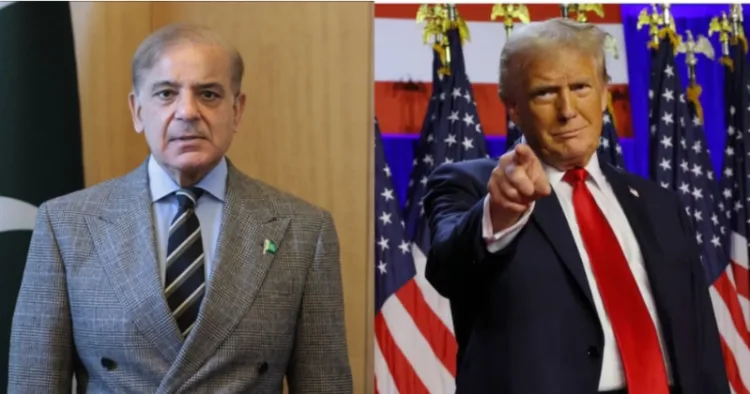With Donald Trump in office, there will be a major shift in foreign policy. While the Trump administration is currently focused on the situation in Gaza and Ukraine, over the next couple of months, the attention would shift to South Asia.
During Trump’s first term, relations with Pakistan was never comfortable and experts feel that the situation would be no different this time too. In his previous term, Trump spoke about regional stability with Pakistan and emphasised on the need to more on counterterrorism.
Pakistan no longer a key player
Prior to his first term, Pakistan shared good ties with the United States. Both the Bush as well as the Obama administration used Pakistan in the war. Under George Bush, Pakistan played a significant role in the war against terror in Afghanistan following the 9/11 attack.
Obama on the other hand credited Pakistan with helping the United States tracking down Osama Bin Laden the mastermind of the 9/11 attack.
However, under Donald Trump who took over the presidency from Barrack Obama, Pakistan has found it hard to maneuver its moves with the United States. Trump often complained about Pakistan diverting military aid towards funding terror. He also questioned the need to even send military aid to Pakistan. The complete shift in ties took place when Trump signalled that the US would be withdrawing from Afghanistan. This left Pakistan in a situation where it was not need in the fight against counterterrorism. The Afghanistan situation was something that Pakistan had used to define its position in the world, but with the withdrawal of troops all that changed.
Pakistan can expect nothing different from Trump during his second term. Trump is clear about his “America First” policy and he would continue to focus on US interests. This could complicate matters for Pakistan and the country may have to make more concessions and this may lead to reduced influence over US policies on South Asian security and counterterrorism.
Pakistan watchers say that there would be hardly any diplomatic engagement on formal lines between the two countries. Islamabad would continue to work with the US and this would depend on personal connections rather than formal diplomatic channels.
The balancing act
It is a known fact that China and Pakistan have deepened ties over the years and even called each other ‘all weather friends.’ Now, China has a Trump problem and every knows what the US President’s views on Beijing are.
Since ties with US fell, Pakistan has been cozying up more towards China. It needed a powerful friend who could not just speak up for it on the world forum, but also dole out money to run its economy. Islamabad readily agreed to setting up the China-Pakistan Economic Corridor (CPEC) although it serves Beijing’s interests more.
Tensions between US and China are high over traded and dominance in the technological field. Trump has vowed to impose tariffs on China and Beijing has promised to retaliate. Now Pakistan finds itself caught between two global powers and would spend a lot of time trying to wriggle out of this situation.
Trump would do everything to curb China’s rise and would adopt a stronger foreign policy. This could affect the future of the CPEC which is bad news for Pakistan.
Trump is also very clear that he would not tolerate terrorist activities and would pull countries that sponsor them. Pakistan is the world’s biggest sponsor of terror. If Trump would go on to sanction Beijing for having close ties with Pakistan since it sponsors terror, then this would spell more trouble for Islamabad.
In order to balance things out, Pakistan may offer to be a bridge between China and the US. Its recent activities in Bangladesh also suggests that Islamabad may leverage its relations with Dhaka. It could also bring up Iran and Afghanistan to demonstrate its influence among countries which are struggling.
While Pakistan may do all it can to ease ties with the US, it would also need to bear in mind the close ties that Washington and New Delhi share. Trump would grow the strategic partnership between India and the US. The invitation to the QUAD foreign ministers for the Trump inaugural is a signal of how important this grouping is for the United States.
Ties between India and US have been on the upward since the past ten years. This has been marked by increased defence cooperation, military exercises and Intelligence sharing. Hence Pakistan should be mindful of the fact that the partnership with New Delhi is important for the United States as it looks to counter China in the Indo-Pacific Region.



















Comments